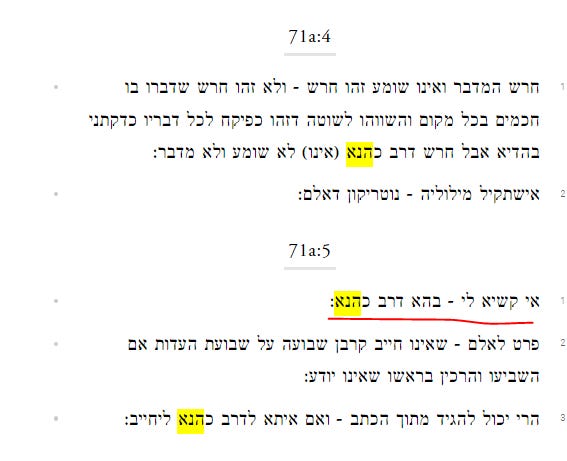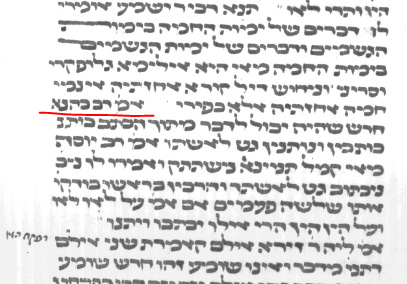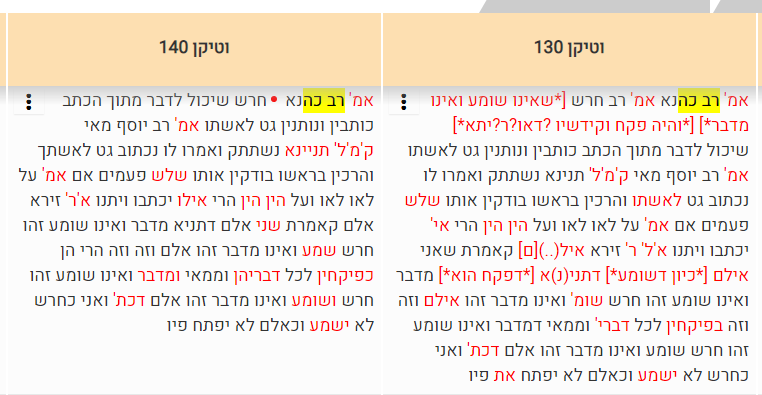Rav Kahana cites Rav...
On Gittin 71a:
אָמַר רַב כָּהֲנָא אָמַר רַב: חֵרֵשׁ שֶׁיָּכוֹל לְדַבֵּר מִתּוֹךְ הַכְּתָב, כּוֹתְבִין וְנוֹתְנִין גֵּט לְאִשְׁתּוֹ. אָמַר רַב יוֹסֵף: מַאי קָא מַשְׁמַע לַן? תְּנֵינָא: נִשְׁתַּתֵּק, וְאָמְרוּ לוֹ: ״נִכְתּוֹב גֵּט לְאִשְׁתְּךָ?״ וְהִרְכִּין בְּרֹאשׁוֹ, בּוֹדְקִין אוֹתוֹ שְׁלֹשָׁה פְּעָמִים, אִם אָמַר עַל לָאו – ״לָאו״, וְעַל הֵן – ״הֵן״, הֲרֵי אֵלּוּ יִכְתְּבוּ וְיִתְּנוּ.
Rav Kahana says that Rav says: With regard to a deaf-mute who can express himself through writing, the judges of the court may write and give a bill of divorce to his wife based on his written instructions. Rav Yosef said: What is he teaching us? We already learned in the mishna: In a case where the husband became mute, and the members of the court said to him: Shall we write a bill of divorce for your wife, and he nodded his head indicating his agreement, they examine him with various questions three times. If he responded to questions that have a negative answer: No, and responded to questions that have a positive answer: Yes, indicating his competence, they shall write the bill of divorce and give it to his wife based on the nod of his head.
There are four or five Amoraim who are plain Rav Kahana, but we might disambiguate based on third-generation Rav Yosef’s reacting to the statement, and that he’s citing first-generation Rav.
Someone in the daf yomi chabura pointed out something strange in Rashi — when they attack this assertion of Rav Kahana citing Rav, why is the attack on Rav Kahana, rather than on Rav. That is:
Since I follow along with Hachi Garsinan open, and scan for variants as we go, I was able to answer this readily. There are several manuscripts that only attribute this to Rav Kahana, omitting Rav.
This is in Oxford 368
as well as in Vatican 140:
I’d just add that since Rav’s name is just Rav, there is a unique dittography / haplography inherent in:
אמר רב כהנא
אמר רב
which could thereby either introduce or obliterate the citation of Rav.






